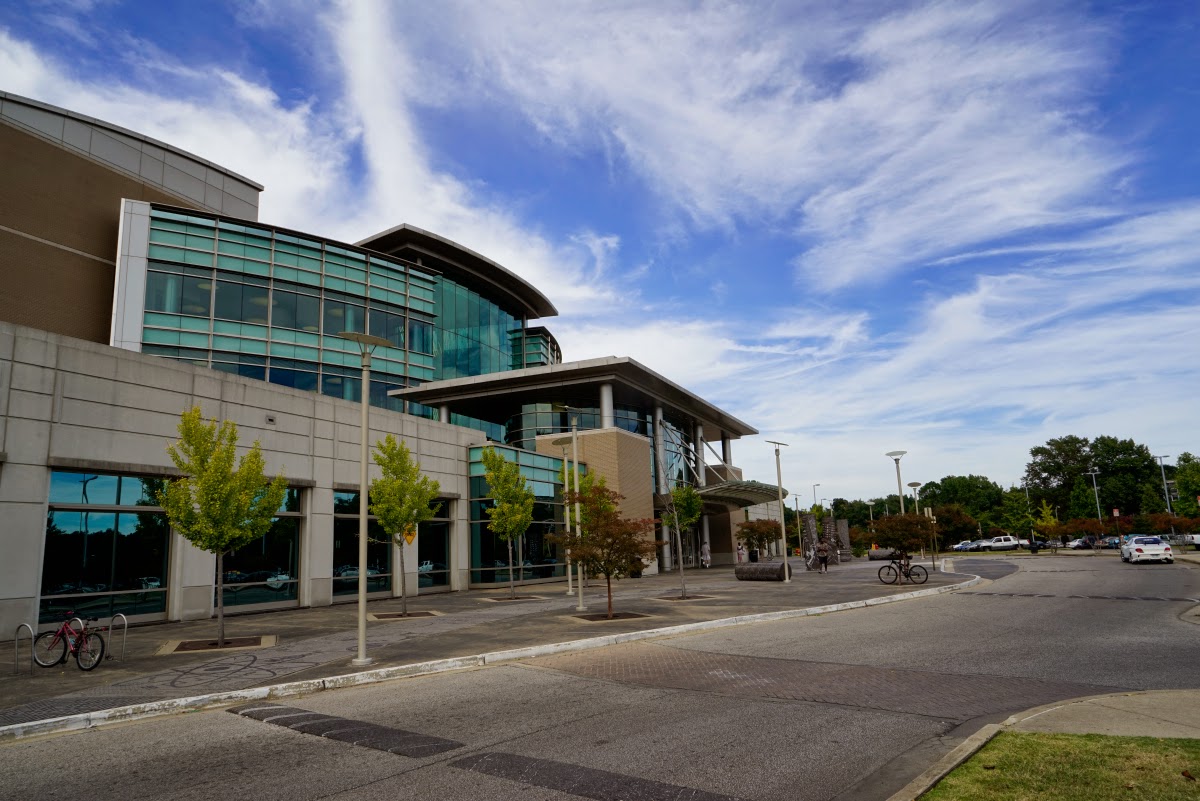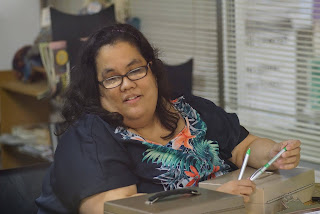MATA to select members of the Transit Advisory Committee
By Tim Wheat
MATA is looking to riders to advise on system changes starting 2017. The Transportation Advisory Committee will work with MATA staff to provide feedback on the quality of MATA’s transit planning, service delivery, and operations.
MATA claims that people with disabilities will be on TAC and they will include MATAplus riders and explore ADA issues. The committee will be comprised of eleven members, and will meet at least four times a year. Each member will serve for a year, and will have an opportunity to re-apply to serve for a maximum of five terms.
TAC has no real authority and does not set regulations or policy. Volunteer TAC members will make recommendations to MATA staff for solutions to problems that are identified and acting as a sounding board for policies and plans.
MATA asks that to apply you should read the TAC Bylaws. The applications to MATA may be submitted in person or via US mail to MATA headquarters at: Memphis Area Transit Authority, Attn: TAC Application, 1370 Levee Rd. Memphis, TN 38108. Applications may also be submitted to the customer service desk at any of MATA’s three main transit centers during normal customer service hours, or via email to TAC@matatransit.com. All applications must be submitted or postmarked no later than Friday, December 2, 2016.
MCIL is aware of one program to help eligible households get low-cost web service.
By Michael Heinrich
AT&T is offering low-cost wireline home Internet service to qualifying households:
- With at least one resident who participates in the U.S. Supplemental Nutrition Assistance Program (SNAP) and
- With an address in AT&T’s 21-state service area, at which we offer wireline home Internet service, and
- Without outstanding debt for AT&T fixed Internet service within the last six months or outstanding debt incurred under this program.
Find out more at https://www.att.com/shop/internet/access/#/
If you qualify, you will pay either $5 or $10 per month (depending on the speed available at your residence). The offer includes:
- No commitment,
- No deposit,
- No installation fee,
- In-home Wi-Fi gateway and access to the entire national AT&T Wi-Fi Hot Spot network,
- No equipment rental.
If the residence already has AT&T internet, you can still get the lower rate by switching to this program.
It appears that this offer is real. One friend of MCIL who met the qualifications and already had AT&T internet service made the switch and not only got cost savings but also a faster internet connection at the same time. Another friend of MCIL who did not have internet service at all signed up for the program. She verified that there was no charge for the installation and equipment and now has internet service in her home.
USDOJ finalizes rules for theaters and captioning
 By Tim Wheat
By Tim Wheat
Earlier this week, Attorney General Loretta Lynch signed a final rule related to closed movie captioning and audio description that will enable people with hearing and vision disabilities to have access to movies. The new rule revises the Justice Department's Americans with Disabilities Act (ADA) Title III regulation to further clarify a public accommodations obligation to provide appropriate auxiliary aids and services for people with disabilities.
The Final Rule requires movie theaters to: (1) have and maintain the equipment necessary to provide closed movie captioning and audio description at a movie patron’s seat whenever showing a digital movie produced, distributed, or otherwise made available with these features; (2) provide notice to the public about the availability of these features; and (3) ensure that theater staff is available to assist patrons with the equipment before, during, and after the showing of a movie with these features.
The rule does not require all theaters to provide captioning. Only certain movie theaters that contain one or more auditoriums that are used primarily for the purpose of showing movies to the public for a fee. The specific requirements of this rule, however, do not apply to any movie theater that shows only analog movies in all of its auditoriums. IMAX produced movies are typically “analog” and do not have description or caption tracks. Additionally, drive-in theaters are excluded in the definition.
Title III of the ADA requires public accommodations, including movie theaters, to provide effective communication through the use of auxiliary aids and services. This rulemaking specifies requirements that movie theaters must meet to satisfy their effective communication obligations to people with hearing and vision disabilities unless compliance results in an undue burden or a fundamental alteration. A single auditorium should have 4 captioning devices and a multiplex should have increasingly more so that a sixteen screen theater would have at least a dozen captioning devices. Description devices are less frequent. One description device for a single screen and at least eight for a 16 screen multiplex.
An advance copy of the final rule, as well as an FAQ on the rule, are available on the Department's ADA website. The Department intends to publish the final rule in the Federal Register in the near future, and the final rule will take effect 45 days after publication. For more information about this rule, please visit the Department's ADA website (www.ada.gov) or call the ADA Information Line: Voice: 1-800-514-0301; TTY: 1-800-514-3083.

A Call for Washington Seminar for the NFB
 By Christina Clift
By Christina Clift
At 5:00 PM on Monday January 30, 2017 members of the Memphis chapter of the National Federation of the Blind along with more than 500 of their fellow Federationists will once again come together for the Great Gathering-In at the Capitol Holiday Inn in Washington D.C. The Great Gathering-In serves as the opening session for the NFB’s Washington Seminar.
The Washington Seminar is an annual event of the National Federation of the Blind which introduces the agenda of blind Americans, as well as the priority issues requiring congressional attention over the coming year. The issues are selected from official positions of the Federation and may address concerns in the following areas: relevant civil rights issues; educational programs and services; rehabilitation of people who are blind for competitive employment; the operation of vending facilities by people who are blind on public property; specialized library services for the blind; the organization and funding of federal programs; Social Security and Supplemental Income programs; and other timely topics. Approximately three legislative initiatives are chosen for priority attention during the Washington Seminar.
During this three day period members of the Tennessee delegation will learn about and advocate for initiatives that will improve the lives of blind Americans. Participants will learn how to talk with their local Congressman and Senators about issues on the NFB’s legislative agenda and about bad public policies that attempt to relegate the Blind to second-class citizenship.
NFB members will swarm Capitol Hill to speak with Tennessee legislators about their concerns and demand the Congress member sponsor legislation that will benefit the Blind. Some of the issues addressed during previous Washington Seminars included the Quiet Car Initiative, Technology, Education and Accessibility in College and Higher Education Act, and the Space Available Act. So far, the priority legislative issues for 2017 have not been released but more information can be found by visiting http://www.nfb.org.
“Washington Seminar demonstrates the power of the Blind as a collective voice for change,” said NFB of Tennessee President James Brown. “It’s a powerful sound hearing hundreds of white canes tapping their way around Capitol Hill.” We invite anyone who is interested in advancing the cause of Americans who are blind, to join us from January 30th to February 2, 2017 in D.C. We hope to see you at our Great Gathering-In, so you can become a part of creating change in the lives of the Blind.
EDITOR’S NOTE: The Memphis Center for Independent Living believes the in using “people first” language. Often you will note in this article “the Blind” and "Blind people" are used in an apparent contradiction to the strict person-first ideal. MCIL recognizes cultural exceptions to the people first guide. You may be familiar with "Deaf" with a capital D used by most people who are deaf. The capital “D” denotes a cultural identity surrounding a signed language and a set of cultural norms separate from the mainstream local culture. People who are deaf who capitalize the D see their deafness as more than just a physiological state, also as an identity. The same applies for people who are deaf-blind and for some people who are blind who, while sharing a language in common with the mainstream, may feel necessary assert a specific community identity.





